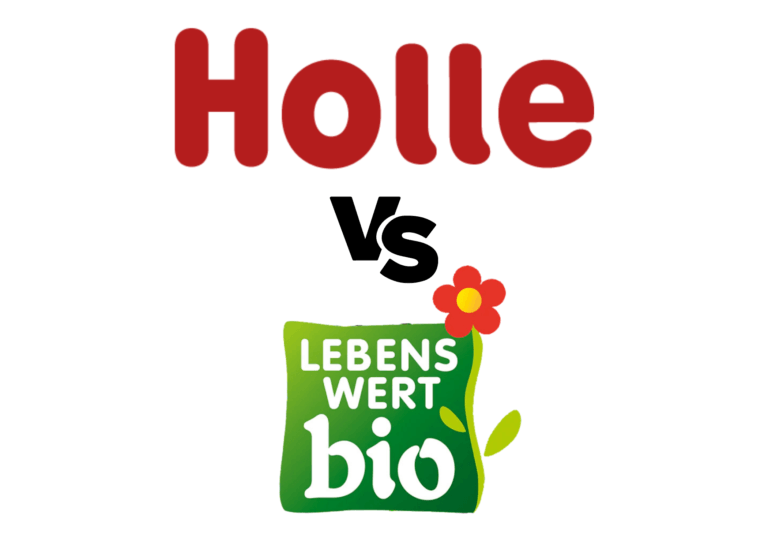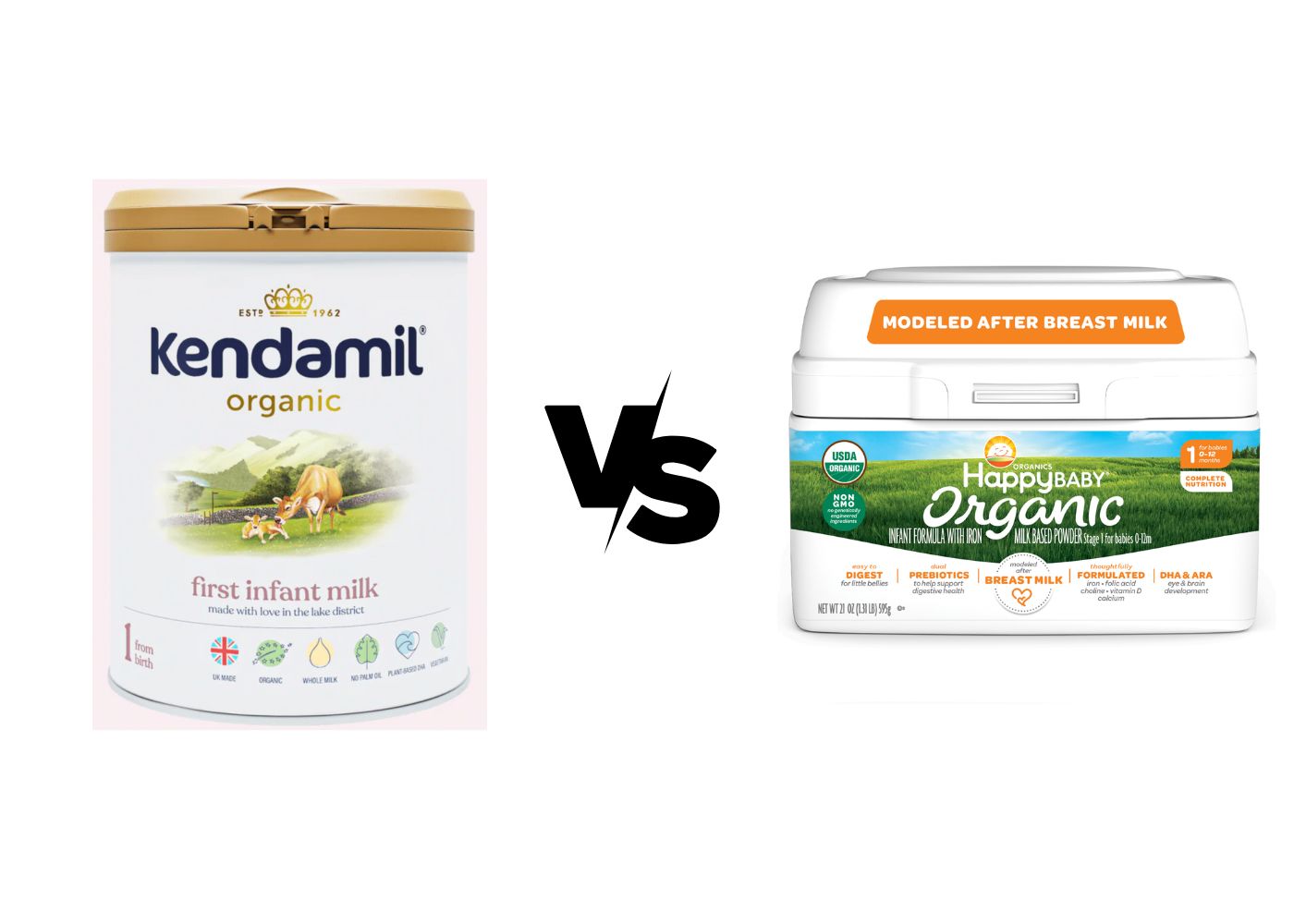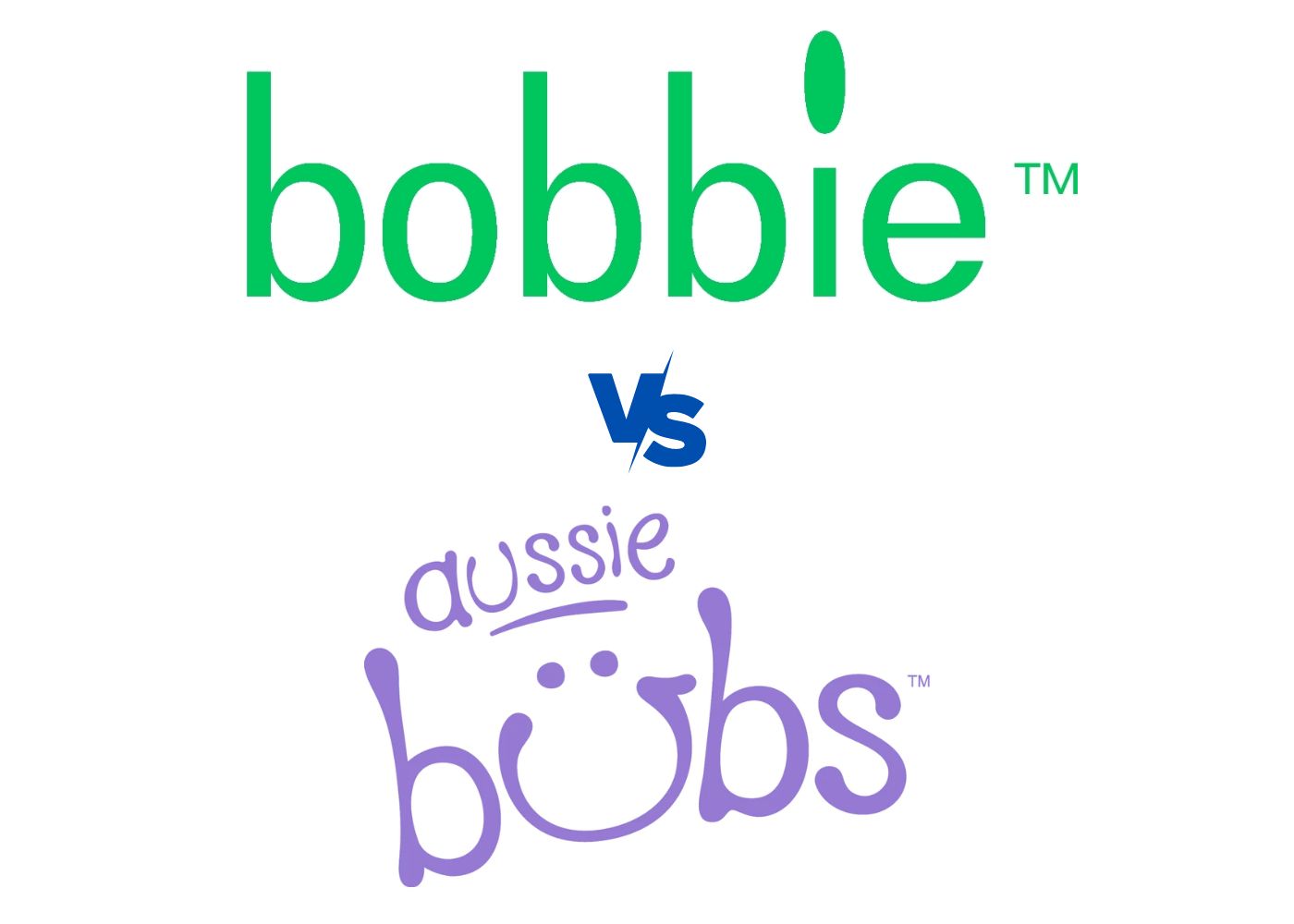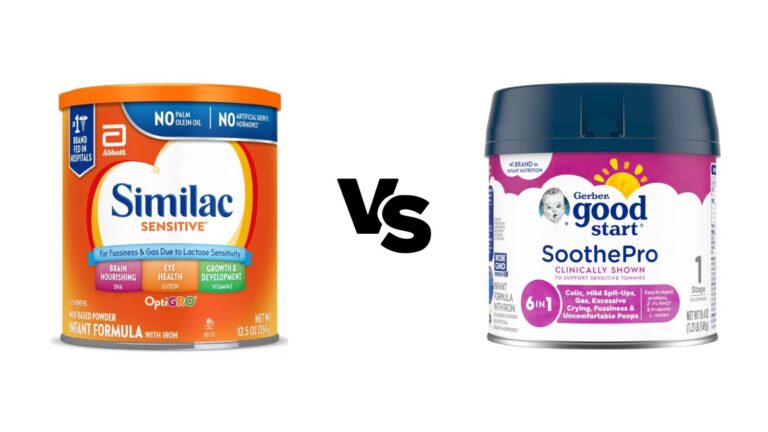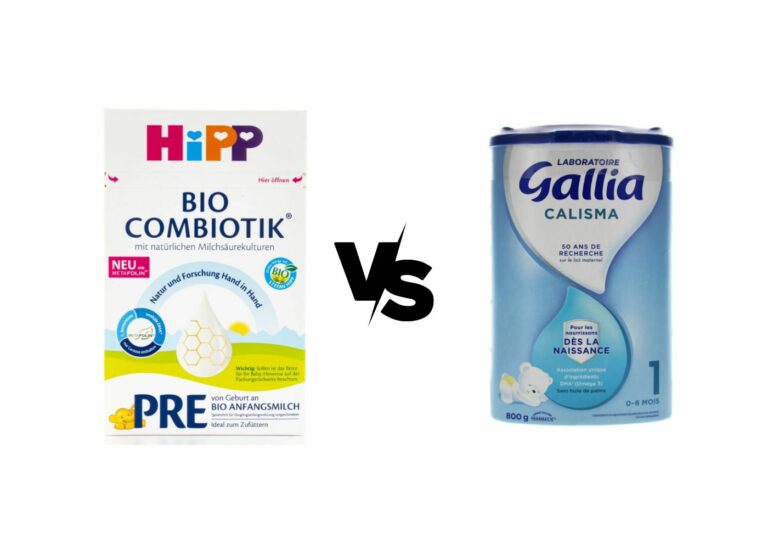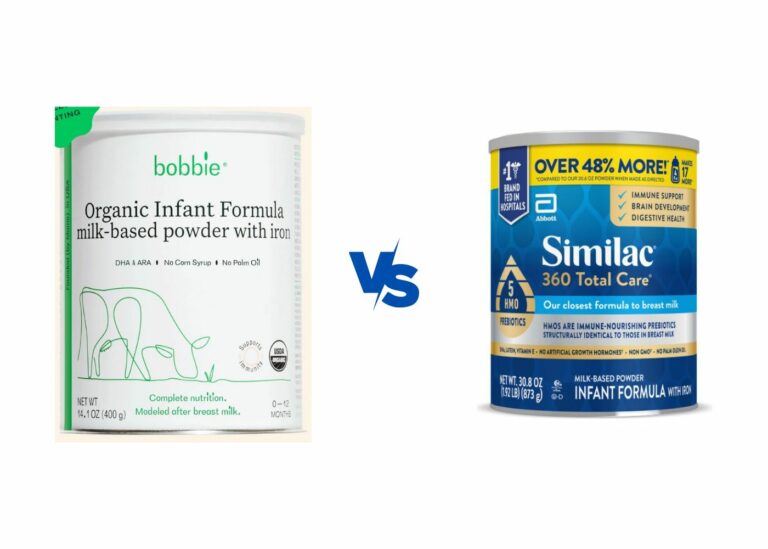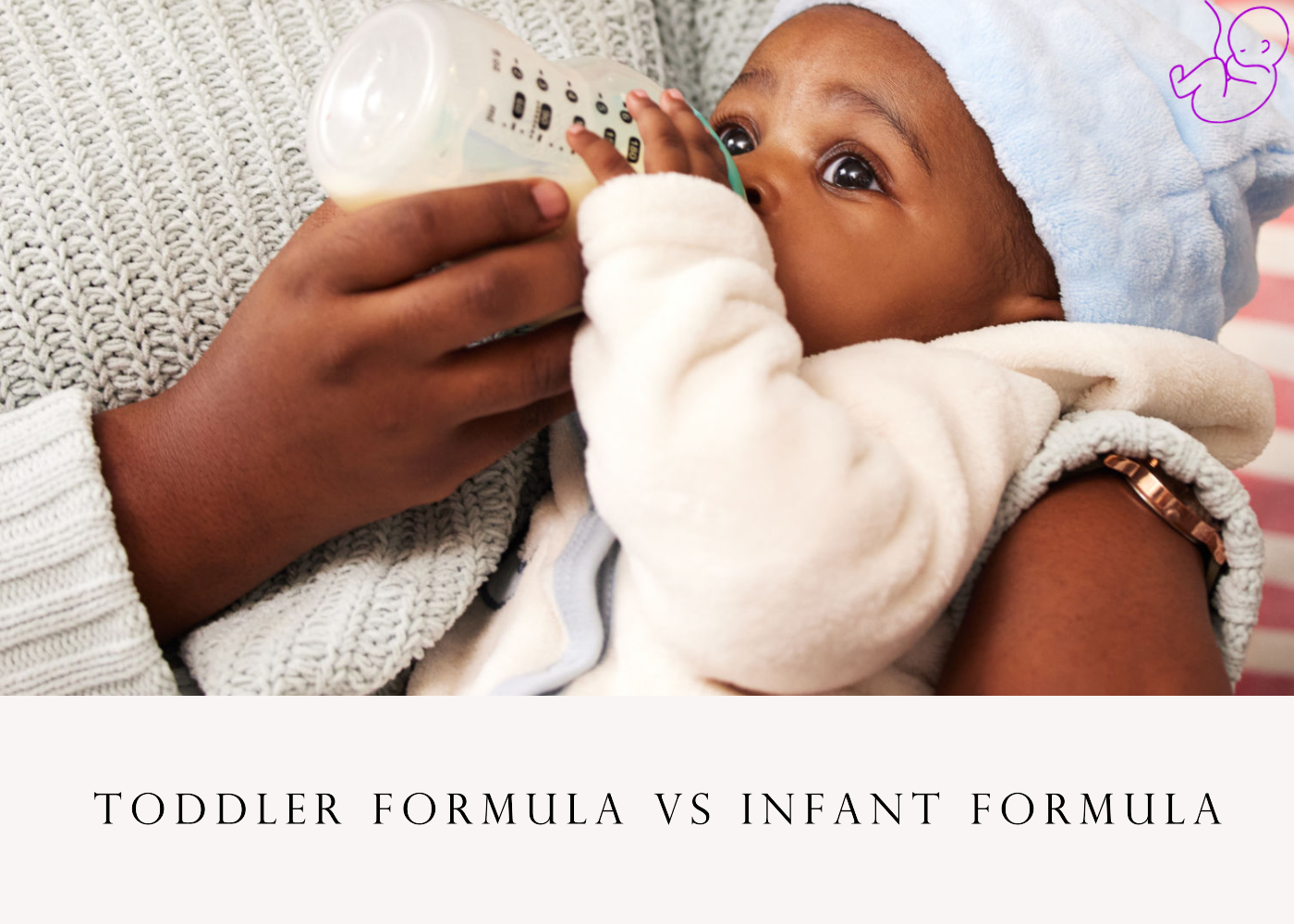
Key Takeaways. Toddler Formula vs Infant Formula
Key Takeaway? Detail Transitioning to Toddler Formula Unnecessary if your child has a balanced diet and is growing healthily. Whole cow’s or goat’s milk can be introduced from 12 months onwards. Considerations for Toddler Formula Toddler formula can be beneficial if your child has started solids late, shows slower growth, or has poor eating habits leading to potential nutrient deficiency. Nutritional Composition of Infant vs Toddler Formula Infant formula mimics breast milk, while toddler formula contains more protein and vitamins. Toddler formula’s increased nutrient content helps fill potential dietary gaps in a toddler’s diet. Cost Differences Toddler formulas can be slightly more expensive due to higher protein content and specific nutrients. However, some brands offer similar pricing for infant and toddler formulas. Consultation with Pediatrician Always advisable before switching formulas. They can provide personalized guidance considering your child’s specific nutritional needs and health condition. Whole Milk or Toddler Formula? Whole milk can be a cost-effective option for toddlers over 12 months and promotes bone development. For those with varied eating habits, toddler formula can help fill potential nutrient gaps.
Are you asking yourself questions like:
Should I give toddler formula to my child after using baby formula all this time?
Can I give my child toddler formula if they’re younger than 12 months?
Could I switch from formula and start offering cow’s or goat’s milk?
This post aims to compare baby formula and toddler formula so that, as a parent, you can make the right decision depending on your personal situation and your baby’s.
So without further ado, let’s get to it.
*Related: Switching from baby formula to whole milk
Our short opinion and experience
Let’s try to make it easy.
Switching to a toddler formula is unnecessary if your child is following a balanced diet and experiencing healthy growth. From 12 months onwards, you can introduce whole cow’s or goat’s milk in small amounts, and everything will go perfectly fine.
If you started introducing solids late, your baby is growing slower than expected, or you’re concerned that they’re not getting the nutrients they need from food because they don’t eat well, then a toddler formula can be a beneficial supplement. We always recommend organic toddler formulas.
Nutritional Composition Comparison: Toddler vs Infant Formula
Infant formula aims to mimic breast milk, while toddler formula contains more protein.
Toddler formulas generally have higher vitamin and mineral content to compensate for potential nutritional gaps.
Infant and toddler formulas aim to cater to different stages in your child’s life but are they very different in terms of nutrition?
Let’s take a look.
Proteins, Carbohydrates, Fats, and Oils
Infant formula is designed to mimic breast milk as closely as possible to provide optimal nutrition for babies up to 12 months old. It typically contains a balance of proteins (whey and casein), carbohydrates (lactose), fats (vegetable oils), and essential fatty acids (such as omega-3 and omega-6).
Toddler formula, intended for children aged 12-36 months, has some differences in nutritional composition compared to infant formula. One significant difference is that toddler formulas contain more protein than infant formulas. This is because toddlers require higher amounts of protein for their growth and development, whereas infants rely more on fats for energy.
Carbohydrate content in both types of formula is primarily derived from lactose, although toddler formulas may have slightly higher levels due to increased energy requirements at this stage of life.
*Note: some formulas add other carbohydrates to cater for the needs of different babies
The fat content in toddler formulas may be lower than in infant formulas since toddlers can obtain some fats through solid food consumption. However, essential fatty acids such as DHA are still present in both types of formula because they play a crucial role in brain development.
After comparing the nutritional composition of infant and toddler formulas of various brands, there is not much difference in protein, carbs, and fat content. The real difference is in the vitamins and minerals, which we’ll see next.
Vitamins and Minerals
Both infant and toddler formulas contain added vitamins and minerals necessary for proper growth and development.
Infant formulas must adhere to strict guidelines by the FDA regarding nutrient amounts to ensure they provide adequate nutrition.
Toddler formulas are relatively unregulated compared to infant formulas but generally contain similar vitamin and mineral profiles with some variations.
Vitamin and mineral content in toddler formulas tends to be higher overall, as they aim to compensate for any potential nutritional gaps in a toddler’s diet.
To put it into perspective, a formula designed for a 0-6 months old baby has 0.5mg of iron per 100ml, while a toddler formula, designed for 12+months kids, has 1.5mg per 100ml.
Nutritional Facts Comparison Table
| Nutrient (per 100ml) | Infant Formula | Toddler Formula |
|---|---|---|
| Protein (g) | 1.4 | 1.8 |
| Carbohydrate (g) | 7 | 8 |
| Fat (g) | 3.5 | 2.8 |
| Vitamins | ||
| Vitamin A | 50 mcg-RE | 63.1 mcg-RE |
| Vitamin D3 | 1.3 mcg | 1.5 mcg |
| Vitamin E | 1.4 mg-α-TE | 1.4 mg-α-TE |
| Vitamin K | 3.6 mcg | 4.1 mcg |
| Vitamin C | 9 mg | 11 mg |
| Thiamin | 0.06 mg | 0.08 mg |
| Riboflavin | 0.18 mg | 0.14 mg |
| Niacin | 0.6 mg | 0.71 mg |
| Vitamin B6 | 0.05 mg | 0.05 mg |
| Folate (DFE) | 19.3 mcg | 26.3 mcg |
| Vitamin B12 | 0.16 mcg | 0.25 mcg |
| Minerals | ||
| Sodium | 24.5 mg | 25 mg |
| Potassium | 67 mg | 103 mg |
| Chloride | 49.6 mg | 51 mg |
| Calcium | 45.2 mg | 118 mg |
| Phosphorous | 23.8 mg | 66 mg |
| Magnesium | 6.4 mg | 6.4 mg |
| Iron | 0.7 mg | 0.96 mg |
| Zinc | 0.5 mg | 0.56 mg |
| Copper | 0.052 mg | 0.04 mg |
| Iodine | 12.3 mcg | 15 mcg |
| Selenium | 2.3 mcg | 2.5 mcg |
| Manganese | 9 mcg | 9 mcg |
Cost Differences
The cost of infant and toddler formulas can vary between brands.
Generally, toddler formulas can be slightly more expensive due to specific nutrients and higher protein content, but some brands offer similar pricing for both.
The cost of transitioning depends on the brand chosen.
Regarding cost, there may be some differences between infant and toddler formulas depending on the brand you choose.
In many instances, toddler formulas can be slightly more expensive than infant formulas due to the specific nutrients and higher protein content they contain.
However, not all brands follow this pricing pattern.
Some offer both infant and toddler formulas at a similar price point.
This means that the cost of transitioning from one formula to another will primarily depend on the brand you’re purchasing.
Is It Necessary To Switch From Infant To Toddler Formula?
Switching from infant to toddler formula depends on the child’s solid food intake and overall nutrition.
A balanced diet may suffice, but a high-quality toddler formula can supplement their nutrition if concerns arise.
Consult a pediatrician for personalized guidance.
The decision to switch from infant formula to toddler formula depends on various factors related to your child’s growth, development, and overall nutritional intake.
If your child has started incorporating solid foods into their diet like we teach you at Blwstore and has a balanced eating plan, switching to a toddler formula may not be necessary. A nutritious diet rich in whole foods should provide most of the vitamins and minerals your growing child requires.
However, if you find that your child struggles with consuming enough solid food or you worry about them not getting enough calories or essential nutrients through their diet alone, using a high-quality toddler formula could be beneficial.
Toddler formulas are designed as a supplement rather than a primary source of nutrition, so they should be used alongside healthy solid foods rather than replacing them entirely.
In any case, consulting with your pediatrician before making any changes in feeding habits or formula type is always advised as they can guide you best by considering your child’s specific nutritional needs and health condition.
Remember that every child is different; what works for one might not work for another.
Always make informed choices based on professional advice and closely monitor your child’s overall well-being during these rapid growth and development stages.
Toddler formula or whole milk?
Whole milk is a cost-effective option for toddlers over 12 months, promoting bone development.
Infants younger than 12 months should avoid it due to its high protein content.
Specialized toddler formulas can cater to dietary needs and fill nutrient gaps for children with varied eating habits.
Whole milk is a cost-effective and nutritious option for toddlers, as it is a natural source of fatty acids, minerals, and vitamins.
Kids aged 12 months and older can safely drink small quantities of whole milk as part of a balanced diet for enhanced bone development. However, infants below the age of one should avoid it due to its high protein content.
Alternatively, specialized toddler formulas may be helpful, as they are specifically formulated to cater to the dietary requirements of this stage of growth.
Children with diverse eating habits, including adequate intake of fruits, veggies, protein, grains, and fatty acids, may drink whole milk occasionally. But, children with insufficient nutrient consumption may benefit from high-quality formulas to fill nutritional gaps.
Conclusion
In summary, if your child has a balanced diet and exhibits healthy growth, there is no need to transition to a toddler formula after they turn 12 months old. It’s acceptable to begin offering whole cow’s or goat’s milk at this age.
However, if you notice slower growth or are concerned about your child’s nutrient intake due to poor eating habits, toddler formula, preferably organic, can be a valuable supplement.
We’re Maria and Alberto, a married couple and educators who are nutrition enthusiasts. Even before we had kids, we were already crazy about nutrition.
We’d read scientific articles, watch videos from nutritionists, and spend hours listening to nutrition podcasts.
Today, we continue doing this, but in a different way, as we’ve learned to sift through the noise and trends. Nutrition, like any other field of knowledge, the more you read and learn, the more you develop a comprehensive understanding of reality, and that’s what has happened to us.
Before having our first child, we focused on learning everything we could about child nutrition, using the same techniques we had already employed, backed by our extensive knowledge in nutrition.
Our mission is to help other parents with their children’s nutrition, to help them become the best versions of themselves.
If we are what we eat and drink, which is absolutely true, let’s do it right!


